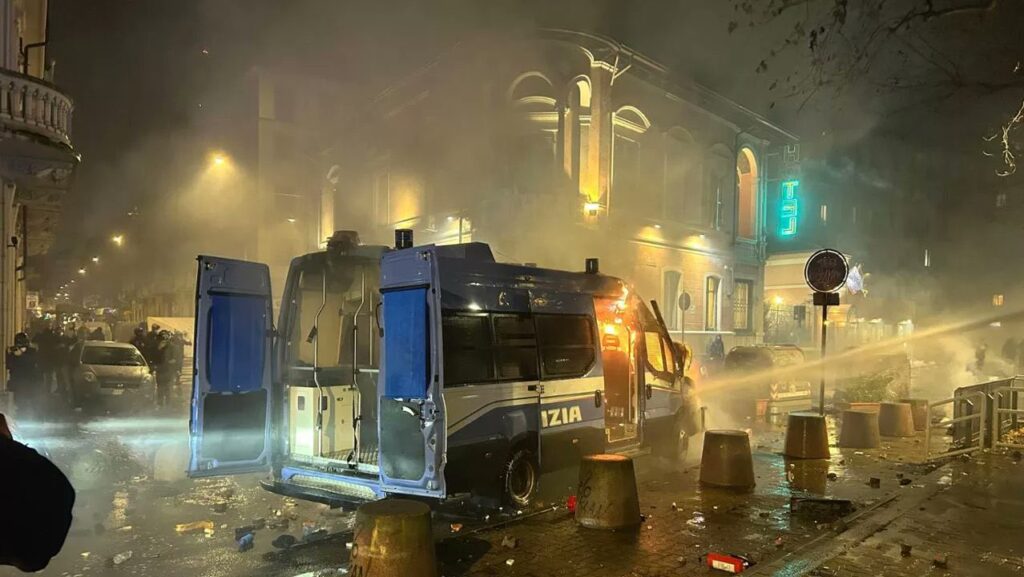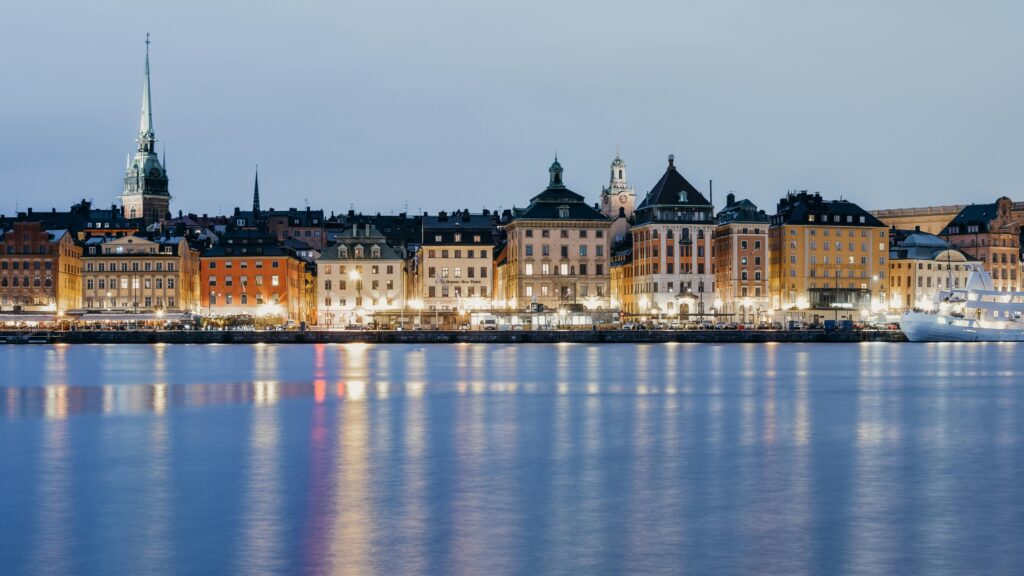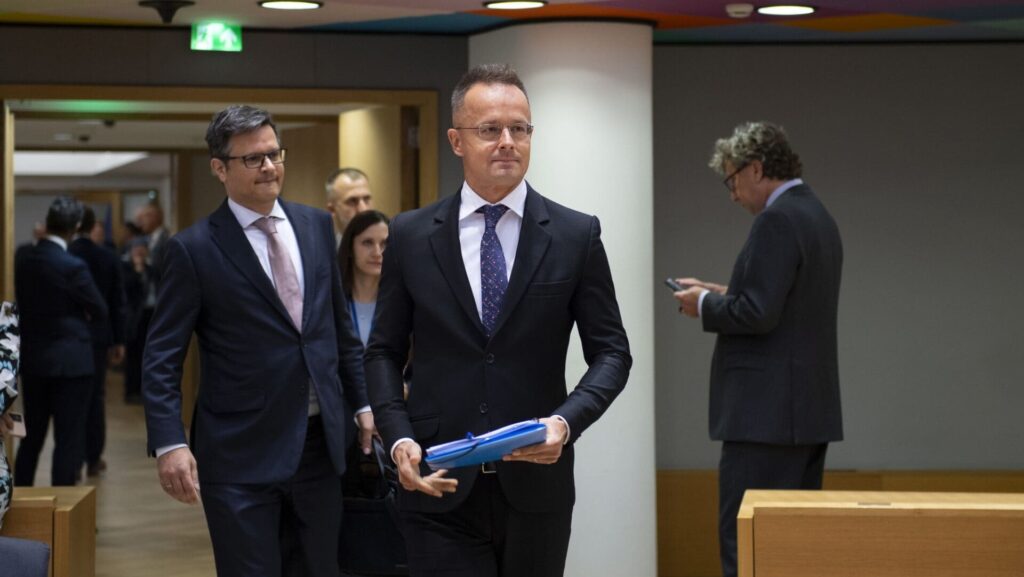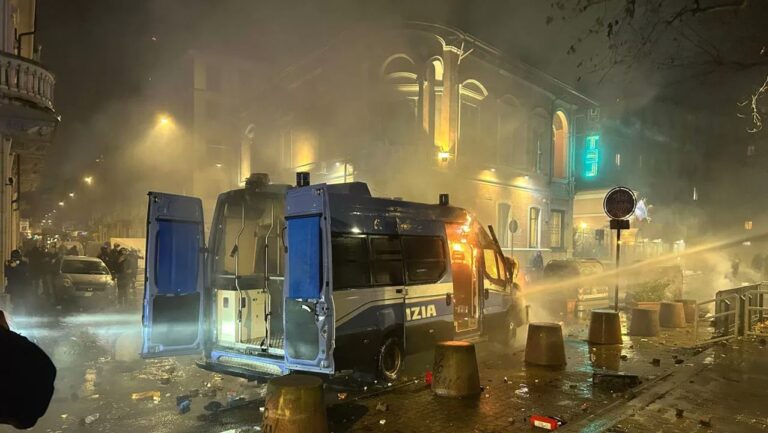Day 3, the last day of the Budapest Global Dialogue 2025 conference organized by the Hungarian Institute of International Affairs, took place on Wednesday, 17 June in its namesake city of Budapest, Hungary.
Balázs Orbán, the Political Director for the Prime Minister of Hungary, and John Mearsheimer, political scientist and Distinguished Service Professor at the University of Chicago, kicked off the day with a fascinating panel discussion about the ongoing Russo–Ukrainian war. Tamás Baranyi of the Hungarian Institute of International Affairs took on the role of the moderator.
The moderator described Professor Mearsheimer as ‘the apostle of realism’. Accordingly, he started the discussion with a rather pessimistic message: he does not believe the war in Eastern Europe can be ended diplomatically. As he explained, the Russians are only willing to compromise on their terms, which are unacceptable to the Ukrainians. These terms are recognizing the annexation of the four Eastern oblasts plus Crimea by Russia, guaranteeing Ukrainian neutrality (meaning no NATO membership for Ukraine), and downsizing the Ukrainian military.
Mr Orbán, on the other hand, welcomed President Trump’s efforts to reestablish channels of communication between the US and Russia, as well as Russia and Ukraine, which resulted in a brief ceasefire alrady; and noted that a strong global power like the United States is needed to pressure both sides into a peace agreement. Prime Minister Viktor Orbán of Hungary went on a similar peace mission while Hungary was presiding over the Council of the European Union last year, he pointed out. However, the director also feels that the current EU leadership is undermining the US-led peace efforts by still pushing only for the Ukrainians’ objectives.
Professor Mearsheimer then gave additional reasons why he does not believe a long-lasting peace agreement between Ukraine and Russia is possible. As he explained again, both sides view the conflict as an existential threat to themselves; and now, Europe is viewing it the same way, increasingly so. Therefore, ‘there is no bargaining place’ in the negotiations, as he put it.
He also opined that it is ‘extremely unlikely’ Russia would use nuclear weapons on Ukraine. However, he added that if Russia were losing the war and sanctions had crippled it—as European states had expected when they imposed them—it likely would have resorted to nuclear strikes out of desperation.
Balázs Orbán took back the word, and warned the audience that the Brussels leadership is exploiting the Ukrainian war to make the EU mechanism more centralized, and chip away at the sovereignty of its Member States. Mr Mearsheimer drew a parallel between President Trump and Prime Minister Orbán’s disposition to the conflict. ‘They both appreciate the Russian position and both want to have a relationship with Russia,’ he said. However, ‘Trump simply cannot give in to Moscow’s war demands, otherwise he would be crucified in Europe.’
Realist versus liberal geopolitical approach was the other major theme of the panel discussion.
'Hungary is unique in that it has remained a realist state since the end of the Cold War'
Mr Orbán stated that Fukuyama's 'end of history' worldview has been transformed, and now liberal globalist powers believe there will be a final battle between 'democracies and autocracies' before the end of history can be achieved. Professor Mearsheimer then pointed out that liberals tend to believe that realists are evil, because they do not want to spread the liberal world order, and want to come to terms with other, adversarial global powers.
He also reflected on the ‘unipolar moment’ after the Cold War, when the US, as the sole superpower, could afford to pursue a liberal foreign policy. However, as he put it, ‘that world had gone away,’ and now Washington must return to realism in its foreign policy to confront the rising threat of China.
'Hungary is unique in that it has remained a realist state since the end of the Cold War,' the Professor told the audience.
Related articles:







